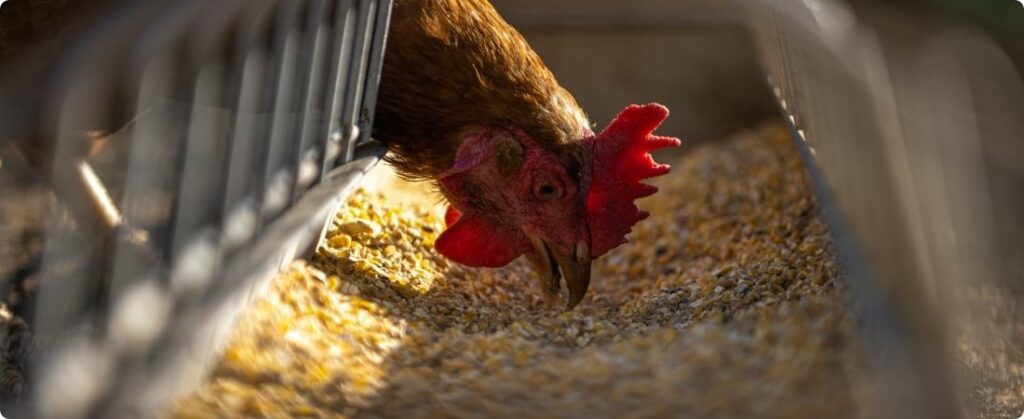
The Ministry of Agriculture and Livestock is currently investigating a case of avian influenza highly pathogenic (HPAI) in a domestic chicken in Anta Gorda, Rio Grande do Sul. Interestingly, the same municipality had confirmed a case of Newcastle Disease on July 17 last year.
In addition, there is another ongoing investigation in the state, this time into a joão-de-barro bird in the municipality of Montenegro. It is worth noting that it was precisely in this city that Brazil confirmed the first outbreak of highly pathogenic avian influenza on a commercial farm, on May 15.
Cases spread and threaten Brazil's health status
As of Wednesday morning (28), the Ministry of Agriculture had 11 ongoing investigations. In addition to the two incidents in Rio Grande do Sul, there is also an investigation involving a tern in Armação de Búzios, in Rio de Janeiro. In the state of Bahia, there are two cases under analysis: one involving a pigeon in Ilhéus and another involving a subsistence chicken in Aurelino Leal.
Furthermore, investigations have been opened into subsistence chickens in the municipalities of Salitre and Quixadá, in Ceará. Also in the same state, there is an outbreak under analysis involving a black-armed pygmy anteater in Icapuí. In Pará, a subsistence bird in Carajás is also under investigation. In Amazonas, the case involves a domestic bird (a duck) in the municipality of Manacapuru. Finally, there is also a case under investigation in a commercial farm located in Aguiarnópolis, in Tocantins.
Brazil in decisive health count
Since May 22, Brazil has started the 28-day countdown to declare itself free of avian influenza in commercial flocks. For this to happen, it is essential that there are no new records of the disease during this period. According to information from the Brazilian Animal Protein Association (ABPA), the main risk factor that could compromise this process is the confirmation of new outbreaks on commercial farms. In this case, the country's health status would be threatened, directly impacting Brazil's credibility in the international market.
In addition, the World Organization for Animal Health (WHO) reported that on May 23, it changed the geographic indicator of the event from “event occurs in the country” to “event occurs in the zone.” The change occurred after Brazil provided additional information on the situation. The Ministry of Agriculture confirmed the outbreak of the disease for the first time on May 15. The case was registered on a commercial farm located in Montenegro, in the state of Rio Grande do Sul.
Government strengthens health system with new hires
Yesterday (27), MAPA confirmed a case of IAAP in the municipality of Mateus Leme, in Minas Gerais. Technicians examined three wild birds and confirmed the contamination. According to the Ministry, the infected birds were a goose, a black swan and a common peacock. With this focus, Brazil has recorded 165 cases of the disease in wild birds, three in subsistence birds and one in a commercial farm.
Due to the state of attention in which the country finds itself, caused by the confirmed case on a commercial farm in Montenegro (RS) and by the ongoing investigations, the Minister of Agriculture, Carlos Fávaro, stated yesterday (27), during a speech at the Agriculture and Agrarian Reform Committee (CRA) of the Federal Senate, that the Ministry of Agriculture, Livestock and Supply published, last week, Notice No. 2/2025. This notice has as its main objective to define the criteria for allocating the 440 vacancies offered at the CPNU, with 200 for agricultural tax auditors and 240 for agents of agricultural activities, sanitary and industrial inspection of Products of Animal Origin, in addition to laboratory technicians.
“We have already anticipated the hiring of 440 new civil servants for the Ministry of Agriculture, thus strengthening the National Health Security System. These new civil servants are already undergoing training to be incorporated into the system. In addition, an additional 251 TP3T is planned and, if necessary, there is a legal provision, by decree, for an increase of up to 501 TP3T. This is a firm commitment by President Lula’s government. We are talking about almost a thousand new civil servants dedicated to Brazilian health security,” stated Carlos Fávaro.
Source: Letícia Guimarães | Notícias Agrícolas












